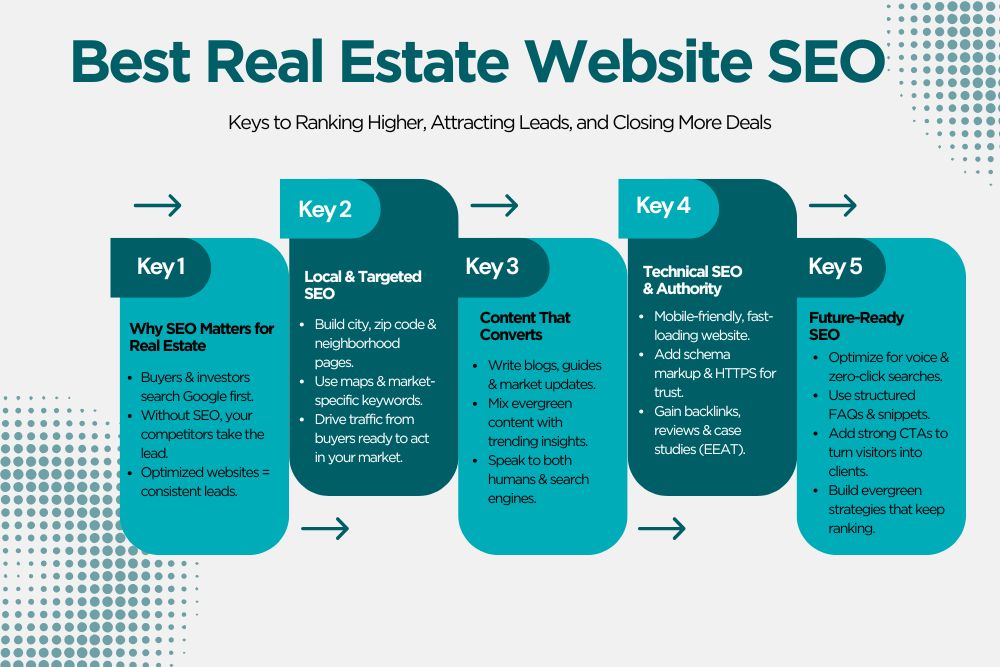

September 30, 2025
Running a real estate business online is no longer just about having a website. Buyers and investors today search on Google before even considering calling an agent. If your website doesn’t show up, your competition will take the lead. That’s why the best real estate website SEO is not an option—it’s the backbone of online success.
People don’t just browse homes; they ask Google specific questions. “Best homes for sale near me.” “Sell my house fast in Pittsburgh.” “Is this a good time to invest in rental property?” Your site needs to clearly answer these questions. When you optimize your website for these search terms, it becomes a lead magnet. The right SEO approach keeps you visible whether someone is buying, selling, or investing.
Real estate is hyper-local. A buyer in Miami doesn’t want results from Dallas. Google is aware of this and ranks pages that focus on specific cities, zip codes, and neighborhoods. The best real estate website SEO builds local pages with area-specific keywords, maps, and market data. It is what drives the right traffic—people who are ready to act in your market.
Your website content should not sound robotic. It should answer questions in simple language while weaving in the right keywords. Blogs, neighborhood guides, property listings, and market updates add fresh relevance to your site. The best approach is mixing evergreen guides (like “How to Buy Your First Rental Property”) with trending insights (like “2025 Real Estate Market Outlook”). This blend keeps your site both relevant and timeless.
Speed matters. A slow site will lose buyers in seconds. Mobile optimization is no longer optional—it’s where most property searches happen. Adding schema markup for listings, clean site architecture, and secure HTTPS builds trust with both search engines and users. These technical foundations make your site easy to crawl and easy to use.
Google doesn’t just look at your site; it checks if others vouch for you. Quality backlinks from local news sources, real estate blogs, and industry-specific directories enhance your authority. Adding reviews, case studies, and real-world success stories enhances EEAT—Experience, Expertise, Authoritativeness, and Trustworthiness. It is critical in real estate, where trust drives decisions.
Buyers are using voice assistants to find homes and agents. Optimizing for conversational queries—“Who is the best real estate agent near me?”—is part of the best real estate website SEO today. Structured FAQs, snippets, and conversational content help you win those voice searches and featured snippets. Even if a user doesn’t click, your brand gets visibility.
Ranking high is only half the battle. Once people land on your site, they should know what to do next. Clear CTAs, such as “Book a Free Consultation” or “Get a Home Valuation,” make the difference between visitors and leads. Pair SEO with conversion design, and you turn traffic into deals.
Markets will change, algorithms will update, but a strong SEO foundation remains timeless. Local relevance, high-quality content, mobile speed, and trust-building remain timeless. The best real estate website SEO grows with your business, keeping you visible year after year.
Real estate is one of the most competitive industries online. The best real estate website SEO strategies blend evergreen approaches with modern updates, such as voice search and EEAT. At SEO to Real Estate Investors, we believe that your website should be more than just a digital brochure—it should be a lead-generating machine that works 24/7.
With the right SEO approach, your site won’t just rank; it will dominate the search results.